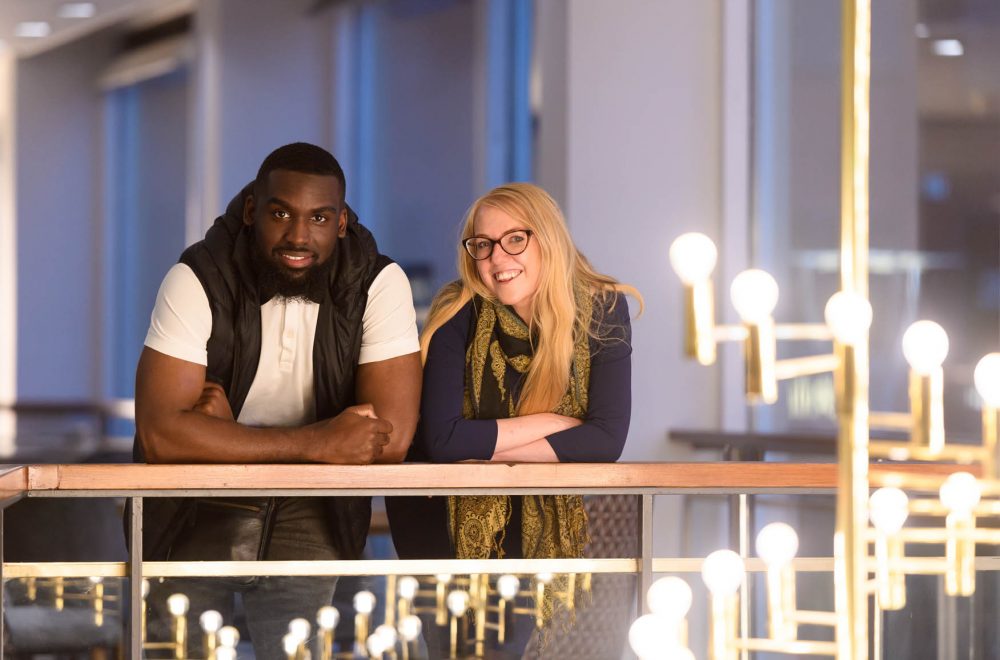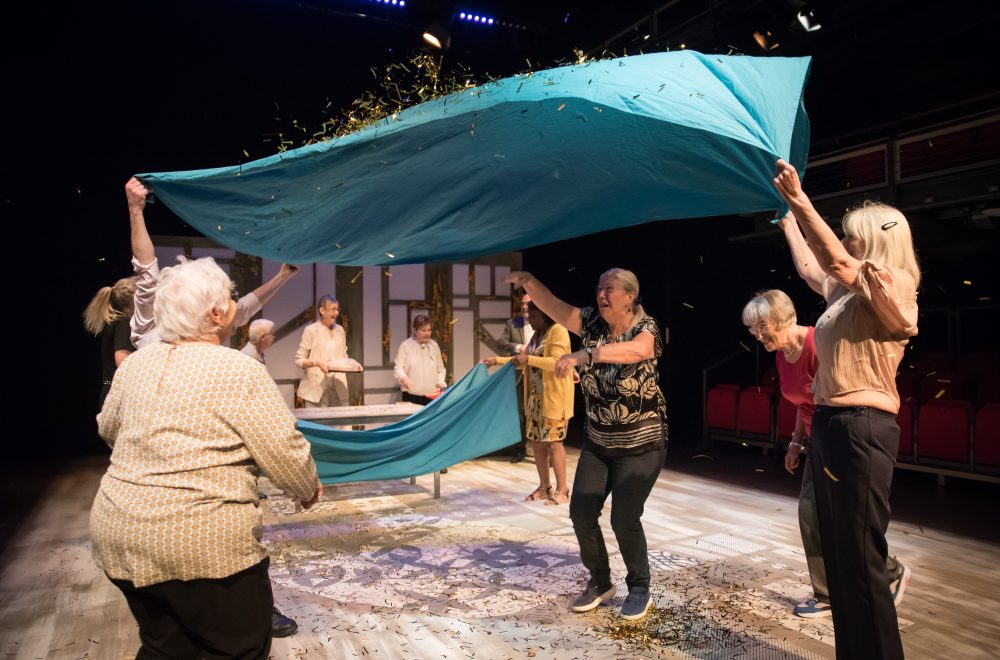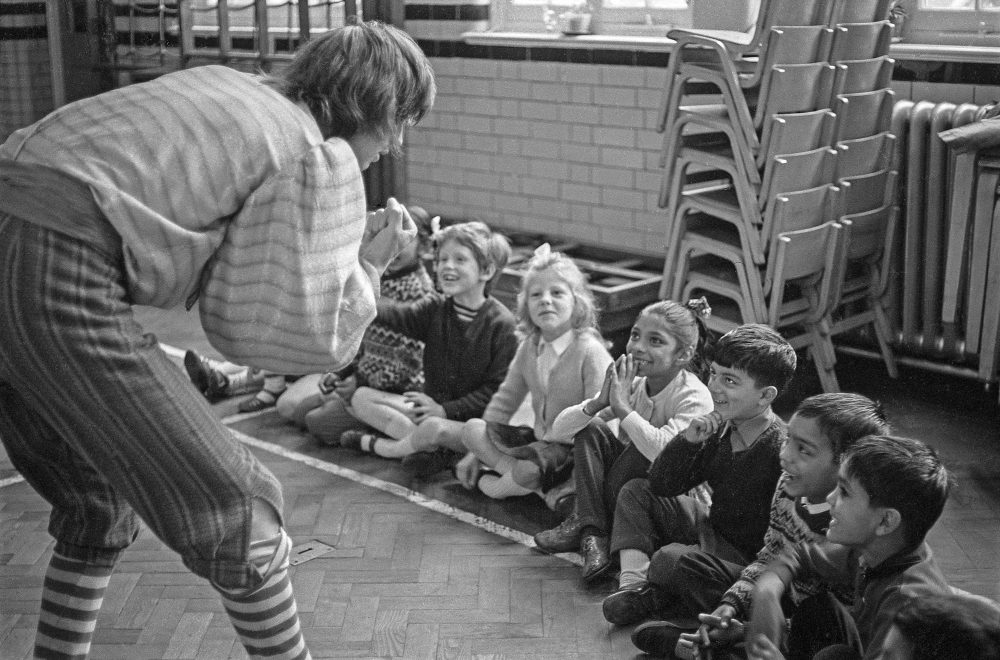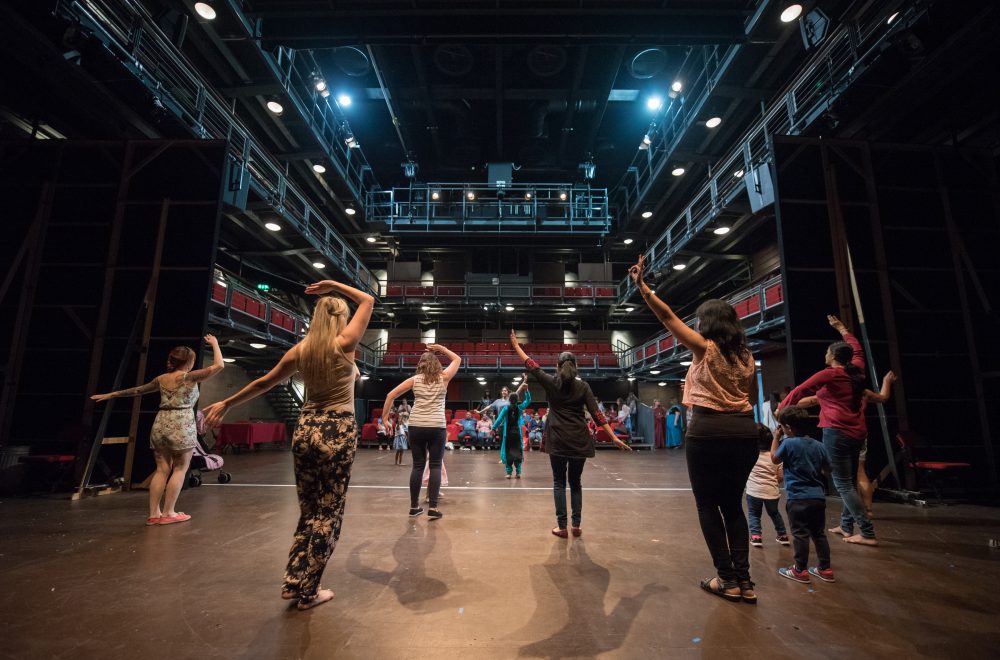The Belgrade Theatre acquired its name in recognition and thanks for a gift of timber from the Serbian capital city of Belgrade that was used in the construction of the auditorium.
The Belgrade was officially opened on 27 March 1958 by the Duchess of Kent. Coventry’s first female Lord Mayor, Pearl Hyde, gave an address of welcome and thanks to the Duchess from the Royal box before the first show began, Half in Earnest by Vivian Ellis.
Under Bryan Bailey, the Theatre’s first director, the Belgrade’s resident company was established, producing the premieres of the “Wesker trilogy” (Chicken Soup with Barley, Roots and I’m Talking About Jerusalem) by Arnold Wesker.
The 1960s, under the direction of Anthony Richardson, was a time remembered as a dynamic and pioneering era at the Belgrade. Company members who made up a theatrical roll of honour included Trevor Nunn, John Gunter, Joan Plowright, Michael Crawford, Frank Finlay and Leonard Rossiter, with Arnold Wesker and David Turner among the new dramatists.
The community and educational work of the Theatre widened with the creation of the Theatre-in-Education (TiE) Company in 1965. This was the founding of the TIE movement. Members of this first company went on to other cities, spreading the word about this new theatrical form, and the Belgrade TiE Company remained at the forefront in the global development of this work.
In 1978 the Belgrade revived the tradition of producing the Coventry Mystery Plays (the theatrical re-telling of biblical stories) and performed the medieval texts in the ruins of the Old Cathedral. Productions continued every three years until 1990 and were revived again in 2000, running every three years until 2009.
The mid-1980s saw the founding of the Belgrade’s Community Department, which was created to reach beyond the building and take theatre to people who had never experienced it before.
In the late eighties a move into co-productions launched a series of bigger shows from the Belgrade, which included Return to the Forbidden Planet. The show won the Olivier Award for Best Musical in 1990 and ran for three years in London before beginning a national tour.
The 1990s saw Bob Eaton take over as Theatre Director. An arts lottery grant provided funds to set up the Coventry Theatre Network, an organisation which linked several local independent theatre companies and the Belgrade. In The Midnight Hour went on a national tour and the first Coventry community play, In Search of Cofa’s Tree, launched a new approach to work with local people.
With Hamish Glen appointed as both Artistic Director and Chief Executive in 2003, the Belgrade forged ahead with an extensive £14m capital development project, including the addition of a new performance space, B2.
Having closed in 2006 for work to begin, the Theatre reopened on 22 September 2007. The new B2 auditorium was officially opened by Prince Edward on 4 February 2008, the 50th anniversary year of the Belgrade’s inaugural performance.
In 2007 Hamish Glen announced a startling re-opening season of home-produced work, featuring rarely performed classics from the European repertoire including Brecht’s Mr. Puntila and his Man Matti, Bruckner’s Pains of Youth and Odon von Horvath’s Don Juan Comes Back from the War, starring Tom Burke.
In January 2008 Sir Trevor Nunn returned to the Belgrade to direct Iain Glen and Imogen Stubbs in a critically-acclaimed, sell-out production of Scenes from a Marriage by Ingmar Bergman in the new B2 auditorium.
March 2008 saw another sell-out success in B2 with Hamish Glen’s production of Alan Pollock’s new play One Night in November, which was set during the Coventry Blitz. Due to public demand, the play was restaged again in B2 and enjoyed two sell-out runs on the Main Stage in the years to follow.
2015 saw the 50th Anniversary of Theatre in Education (TiE) at the Belgrade, marking 50 years since the establishment of a company dedicated to using theatrical performance and drama workshops to explore issues of cultural, social, political and moral significance as part of a free service to schools and the young people of Coventry.
To mark this significant anniversary, the Belgrade held a year of events to celebrate and promote theatre made for and with young people. Events included a two-week festival of theatre by and for young people in July, a two-day international conference exploring the relationship between theatre and learning, and a two-week festival of theatre for children and families that October.
If you have a question about a past show, actors, or other queries related to the theatre’s history from decades gone by, the Belgrade Theatre’s archives are all held at the History Centre, which is based at the Herbert Art Gallery and Museum. The archives are publicly accessible by appointment, and staff can also answer questions relating to the archive.




The Belgrade Theatre played a pivotal role in the successful bid for Coventry to become UK City of Culture 2021. In 2019 the Belgrade announced the appointment of Corey Campbell, Balisha Karra and Justine Themen as the three Co-Artistic Directors who would oversee its producing programme for Coventry’s year as City of Culture.
Titled “Keys”, the project was partly inspired by the story of the African-American actor Ira Aldridge who, at the age of 21, became the first person of colour to manage a British theatre when he was handed the keys of the Coventry Theatre in 1828.
The Belgrade’s programme during UK City of Culture 2021 has included Roundabout – a site-specific, pop-up theatre co-produced with Paines Plough; a new musical co-produced with Cardboard Citizens, called The Ruff Tuff Cream Puff Estate Agency and SeaView, a digital TV series created by Corey Campbell.
In October 2021, Artistic Director & CEO, Hamish Glen, and Executive Director, Joanna Reid, announced that they would be stepping down from their roles at the end of the year.
They have been succeeded by Laura Elliot as CEO and Corey Campbell as Creative Director who both took up post in January 2022.